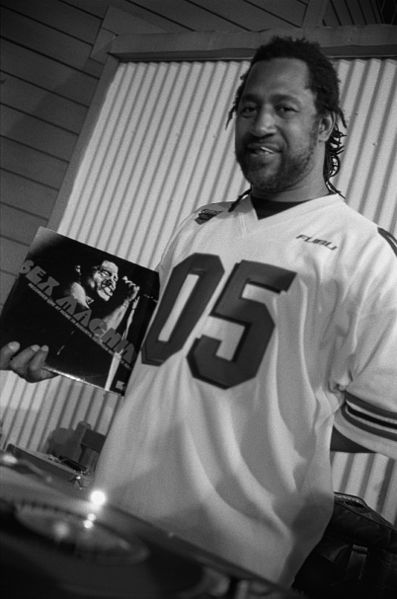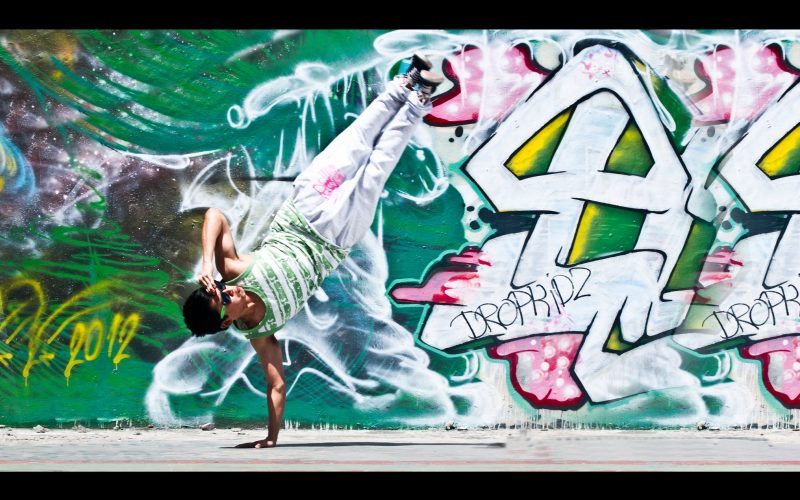The 1970s marked the genesis of a musical and cultural revolution that would reshape the landscape of American music and society – hip hop. Emerging from the streets of New York City, particularly the Bronx, 70s hip hop was more than just music; it was a dynamic and multifaceted cultural movement. This article explores the history of hip hop, 1970s hip hop fashion, DJing and MCing, influential hip hop artists, and the broader cultural impact of 70s hip hop, providing a brief understanding of its foundational decade.
The History of 70s Hip Hop
Origins of the Movement
Hip hop’s roots can be traced back to the early 1970s in the Bronx, a borough of New York City experiencing significant economic decline and social unrest. Amidst the challenging conditions, African American and Latino youth sought new ways to express themselves, creating a vibrant cultural scene that blended music, dance, and art. The movement was heavily influenced by the block parties held by DJ Kool Herc, widely considered the founding father of hip hop.
DJ Kool Herc, originally from Jamaica, brought his knowledge of Jamaican sound systems to the Bronx. His innovative technique of using two turntables to extend the breakbeat sections of songs became a cornerstone of hip hop music. These breakbeats provided the perfect backdrop for breakdancing, rapping, and developing a unique street culture.
The Evolution of DJing and MCing
As hip hop evolved, the roles of the DJ (disc jockey) and MC (master of ceremonies) became central to the genre. DJs like Grandmaster Flash advanced the art of turntablism, its developing techniques such as scratching and mixing that became integral to hip hop music. Grandmaster Flash’s innovations allowed for greater creativity and complexity in DJ performances, enhancing the overall experience of hip hop events.

MCs, on the other hand, began to rhyme over the beats, delivering rhythmic and often socially conscious lyrics. This element of vocal expression, known as rapping, quickly became a defining feature of hip hop. Early MCs like Coke La Rock, who performed with DJ Kool Herc, set the stage for the lyrical and performative aspects of the genre.
The Cultural Movement and Fashion of 70s Hip Hop
Fashion: A Unique Aesthetic
The 1970s saw the birth of hip-hop, and with it came a bold fashion style that left a lasting impact. The 70s hip hop style was a way of life, and clothing was a huge part of this expression.
In the South Bronx, New York – USA, young people created their own 1970s hip hop fashion. They drew inspiration from the streets, blending comfort with creativity. You would see colorful tracksuits, leather jackets, and big, flashy jewelry. The 70s hip hop clothing was all about standing out and making a statement.
One of the most iconic elements of 70s hip hop outfits was the use of sneakers 🛒. Brands like Puma and Adidas became popular because they were both stylish and comfortable for dancing. Breakdancers needed footwear that allowed them to move freely, and these sneakers were perfect.
Run-D.M.C. revolutionized hip-hop fashion with their unique street style, ditching flashy outfits for a bold look centered around Adidas BW Army 🛒 and Superstar sneakers 🛒. Their laceless white sneakers symbolized rebellion and authenticity in the hip-hop community. In 1986, they released “My Adidas,” celebrating their favorite shoes and connecting deeply with fans who shared their love for the brand and street culture. This iconic partnership between Run-D.M.C. and Adidas marked a pivotal moment in both fashion and music history.
Accessories also played a key role in the 1970s hip hop fashion. Kangol hats, large sunglasses, and thick gold chains were everywhere. These items added an extra flair and showed off personal style. People wore them with pride, making each outfit unique.
For 70s hip hop fashion female enthusiasts, the look was just as bold. Women embraced oversized clothing, including baggy pants and loose shirts, often paired with big hoop earrings and funky hairstyles. The idea was to mix feminine and masculine elements, creating a powerful and confident look.
Hip-hop fashion in the 70s was more than just clothes; it was about self-expression and community. Each piece of clothing was telling a story and connecting people to the hip-hop movement. The 70s hip hop style laid the foundation for future generations, influencing fashion trends for decades to come.
From its inception, hip hop was a platform for addressing social issues and advocating change. The genre emerged in a context of poverty, racism, and urban decay, and artists used their music to reflect and critique these realities. Hip hop provided a voice for marginalized communities and became a powerful tool for raising awareness and inspiring action.
Breakdancing and Graffiti: Artistic Expressions
Two key elements of the 70s hip hop culture were breakdancing and graffiti.
Breakdancing, also known as b-boying/b-girling, is a form of street dance characterized by acrobatic moves, intricate footwork, and spinning. Dancers, or b-boys and b-girls, showcase their skills at hip hop events, contributing to the energy and dynamism of the scene. Another street dance style that people usually confuse with breakdancing is the electric boogie (popping). The common breakdancing and electric boogaloo elements are dancing battles, improvisations, community, and expression. Both street dance styles are tightly related to the hip hop culture.
Graffiti, another essential component of hip hop culture, served as a visual form of expression. Graffiti artists, or writers, used spray paint to create elaborate murals and tags on buildings, trains, and other public spaces. These artworks were aesthetically significant and conveyed messages of resistance and identity.
Influential 70s Hip Hop Artists
DJ Kool Herc: The Founding Father
DJ Kool Herc’s contributions to the birth of hip hop cannot be overstated. His innovative use of breakbeats and turntables laid the groundwork for the genre. Herc’s legendary parties at 1520 Sedgwick Avenue in the Bronx are often cited as the birthplace of hip hop. His influence extended beyond music, inspiring a generation of young people to embrace creativity and self-expression.
Grandmaster Flash: The Innovator
Grandmaster Flash, another pioneer of 70s hip hop, revolutionized the role of the DJ. His techniques, such as backspinning and punch phrasing, expanded the possibilities of DJ performances. Flash’s group, Grandmaster Flash and the Furious Five, also played a crucial role in popularizing hip hop with their dynamic performances and socially relevant lyrics.
Afrika Bambaataa: The Visionary
Afrika Bambaataa, a former gang leader turned community leader, was instrumental in transforming hip hop into a cultural and social movement. He founded the Universal Zulu Nation, an organization that promoted peace, unity, and knowledge through hip hop culture. Bambaataa’s 1982 hit “Planet Rock” introduced electronic music elements to hip hop, further diversifying the genre’s sound.
The Legacy of 70s Hip Hop
The impact of 70s hip hop extends far beyond its origins in the Bronx. The genre laid the foundation for a global cultural phenomenon that continues influencing music, fashion, art, and social movements. The innovations of pioneers like DJ Kool Herc, Grandmaster Flash, and Afrika Bambaataa paved the way for future generations of hip hop artists and enthusiasts.
Hip hop’s emphasis on creativity, resilience, and community has made it a powerful force for change. The genre has giving voice to the voiceless and created opportunities for artistic and personal expression.
The 1970s were pivotal in music history, not only spawning legendary rock bands but also giving birth to hip hop in the Bronx. This revolutionary genre of the 70s and cultural movement transformed music with its unique blend of beats and rhymes, leaving a lasting impact on global culture.
In today’s digital age (2020s), the legacy of 70s hip hop lives on, inspiring new generations to push the boundaries of art, music, and social activism. As we continue to celebrate the pioneers and innovators of this transformative decade of the 70s, we recognize the enduring impact of 70s hip hop on the world we live in today.
Links marked with 🛒 (shopping cart) symbol are affiliate links. These links track purchases or visits from our site, earning us a commission. This helps support Music Nonstop Today.












